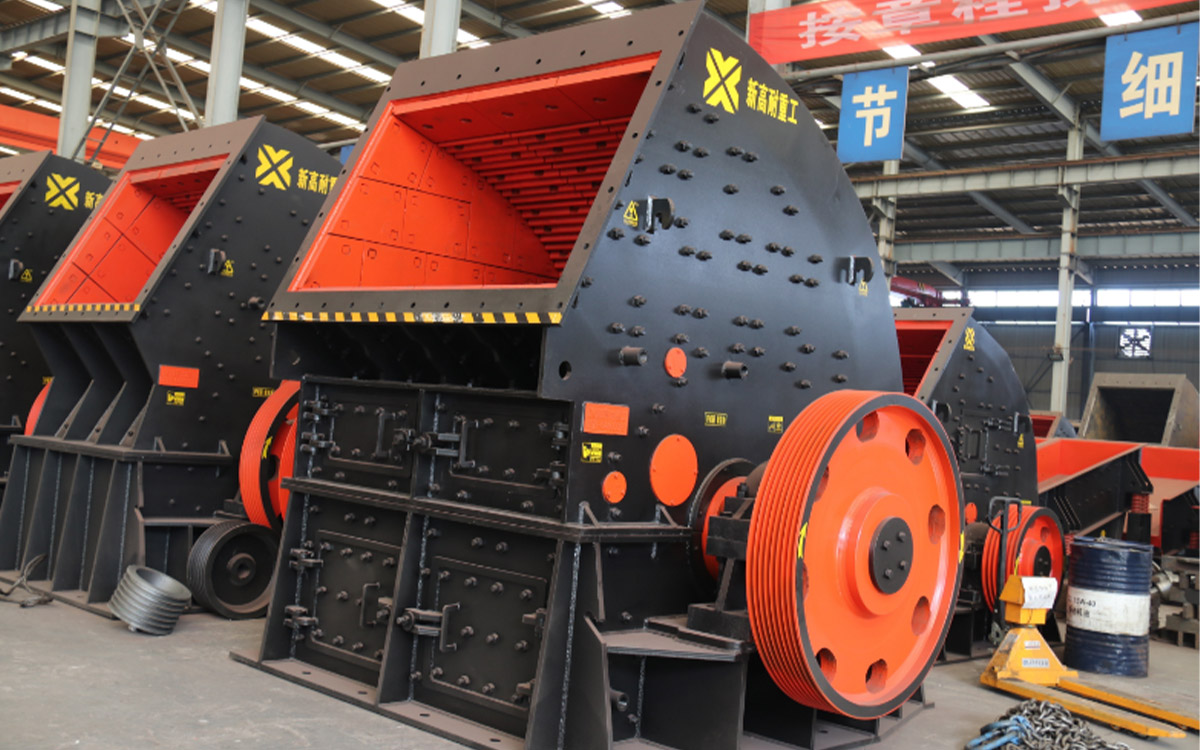
Bearing is an important internal part of the hammer crusher. Since it carries the main load of the crusher in daily work, various failures will inevitably occur. Bearing locking is more common in equipment overhaul and production service sites. It means that the bearing generates a lot of heat during operation, but it cannot be dissipated in a short time, resulting in a sharp rise in bearing temperature and eventually bearing locking. Timely detection and repair will affect the normal operation of the hammer crusher, thereby affecting its production efficiency, so it is of great significance to analyze the cause of its failure.

Reason
1. Assembly problem
Failure to measure the bearing size and grind the inner hole during assembly: This will cause the outer ring of the bearing to not match the housing hole or the inner ring of the bearing to the shaft. In this case, once the machine is running, the bearing housing hole will be deformed, thereby squeezing the bearing The outer ring part causes the radial clearance of the bearing to become smaller, the rolling elements roll unevenly, aggravate wear, and increase the gap between the inner ring of the bearing and the shaft, so that the inner ring of the bearing rotates with the rolling elements and the shaft Increasing the frictional force will generate a large amount of heat, which will cause the bearing to heat up and vibrate, resulting in a locking phenomenon.
Improper control of the bearing heating temperature during assembly: When the temperature of the bearing heater is too high during the heating operation, it will cause tempering and reduce the hardness and precision, so that the bearing temperature will increase, the bearing wear will increase, and the locking phenomenon will occur.
2. Oil seal problem
During the working process of the hammer crusher, a large amount of dust pollutants are likely to be generated, which will affect the quality of the oil seal. Once the quality of the oil seal fails, it will cause dry friction and damage to the oil seal, which will cause the temperature of the bearing to rise too high in a short time. At this time, it is necessary to replace the oil seal and then conduct a test run, which can solve this situation.
3. Gap problem
If the clearance is selected incorrectly, even the best bearings will be damaged, and in actual work, many hammer crushers are sometimes installed and debugged only by feeling, resulting in improper adjustment of the bearing clearance. If the axial clearance is too small, it will It is very easy to cause the bearing to heat up and cause the bearing to lock up.
4. Lubrication problem
If the amount of grease added to the bearing is too large, the frictional torque will increase and the temperature of the bearing will rise. If the amount of grease added is too small, the effect of lubrication cannot be fully exerted to obtain reliable lubrication, resulting in dry friction and uniform Can cause excessive bearing temperature or increased bearing wear.
For users of hammer crushers, it is especially important to be familiar with the troubleshooting methods of crushers, because only by understanding can they be repaired flexibly and quickly.
Solution
1. Detailed inspection: During the assembly process or when the equipment is disassembled and repaired, the quality inspectors should first check the dimensions of the shaft diameter and the bearing hole and other parts, and secondly, when replacing the short shaft assembly in the bearing, they should check the installation Measure the size to ensure the size matches.
2. Increase the support flexibility of the bearing seat: the impact load acting on the bearing depends on the impulse acting on the rotor and the support flexibility of the bearing seat, so add a rubber plate of appropriate thickness between the bearing seat and the support frame ( Industrial rubber plates with pressure resistance and cushioning properties can be selected), which can effectively improve the support flexibility of the bearing and reduce the impact load acting on the bearing.
3. Ensure that the lips are filled with grease: the oil seal is an important sealing element, which is used to seal the rotating shaft in the mechanical equipment. The cavity is generally kept stationary, so the oil seal is also called the rotating shaft lip seal. For the oil seal with auxiliary lip, it can effectively prevent dust and prolong the life of the oil seal. However, the auxiliary lip is often poorly lubricated and has high friction, which may easily cause dry friction and damage to the seal. Fill the space with grease.
4. Strengthen lubrication: Timely and correct lubrication can greatly reduce frictional resistance and suppress the temperature rise of the bearing. For the high-speed and heavy-load working characteristics of the rotor bearing, molybdenum disulfide composite calcium-based grease should be used to lubricate the bearing. In addition, every 8 hours of work Add grease every hour and change the oil every 3 months.
5. Ensure that the amount of grease added is appropriate, and replace the sealing cover in time: Generally speaking, the appropriate amount of grease added is 1/3~1/2 of the total void volume in the bearing. Therefore, an appropriate amount of grease should be injected regularly according to the use requirements , and use gasoline or kerosene to clean the bearings, seal rings, and covers, and replace the labyrinth seal covers with excessive wear and tear on the bearing seat in time.